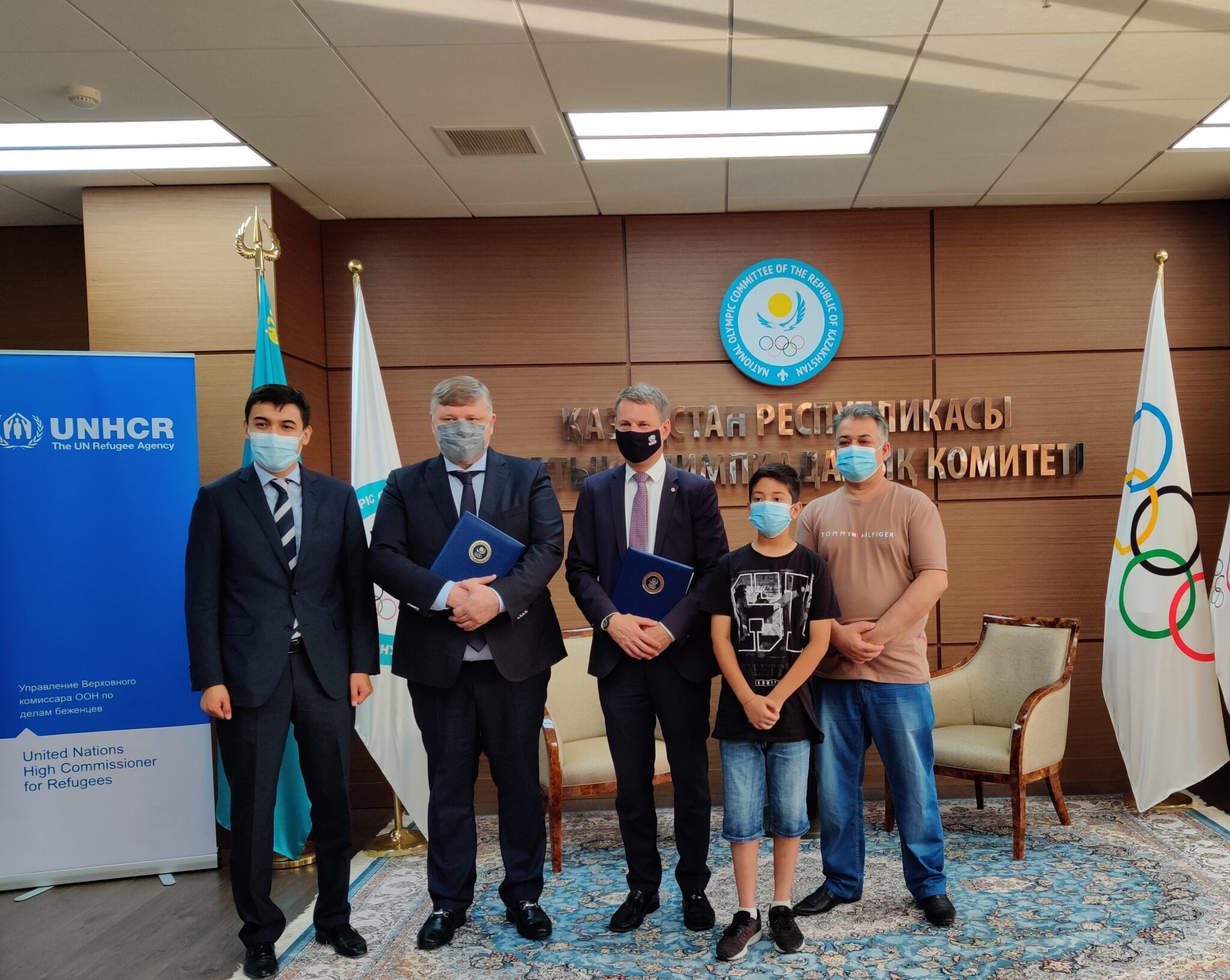On 18 June the National Olympic Committee (NOC) of the Republic of Kazakhstan and UNHCR, the UN Refugee Agency, signed a memorandum of understanding to implement joint activities aimed at greater inclusion of refugees and strengthening social cohesion between refugees and the host community through sport.
The memorandum was signed as part of UNHCR global campaign to mark World Refugee Day, an international day designated by the United Nations to celebrate the strength and courage of people who have been forced to flee their home country to escape conflict or persecution. It is also a day to celebrate the fact that, with help from welcoming communities and kind neighbours, people can find the strength to heal, rebuild and even thrive.
“UNHCR has been working with the International Olympic Committee (IOC) for nearly 25 years to leverage the power of sport and the Olympic Movement to assist and protect refugee children and youth. On World Refugee Day we are pleased to reinforce Olympic partnership through collaboration with the National Olympic Committee of Kazakhstan, in honour of the upcoming Olympic Games and the power of sport to transcend language and nationality to bring people together,” said Hans Friedrich Schodder, UNHCR Representative for Central Asia.
“We support the international Olympic movement and share the UN humanitarian values towards refugees. The National Olympic Committee of Kazakhstan is ready to do everything in its power so that children and youth who are far from their homeland can still play sports and fulfill their Olympic dreams. For Kazakhstan, as a country committed to the Olympic principles of equality and non-discrimination, it is very important to show solidarity and support, especially in the period of the global migration crisis and pandemic,” said Timur Kulibayev, President of NOC Kazakhstan
Partnership between NOC Kazakhstan and UNHCR supports objectives of the Global Compact on Refugees, a framework for international cooperation recognizing the important role that sports and cultural activities can play in social development, inclusion, cohesion, and well-being of refugees and their host communities.

Sport also has the potential to contribute to the Sustainable Development Goals (SDGs) as recognized by the UN Office on Sport for Development and Peace, and the ‘leave no one behind’ agenda to which Kazakhstan and UNHCR are firmly committed.
Globally over 80 entities – including National Olympic Committees, international sporting federations, national associations, clubs, and civil society organizations working through sport – have pledged to provide sporting opportunities to young refugees.
In 2016, for the first time ever, a team of ten refugee athletes competed at the Summer Games in Rio. In 2021, a team of 29 refugee athletes will join the Tokyo Games with the support of UNHCR and the International Olympic and Paralympic Committees.
Share on Facebook Share on Twitter